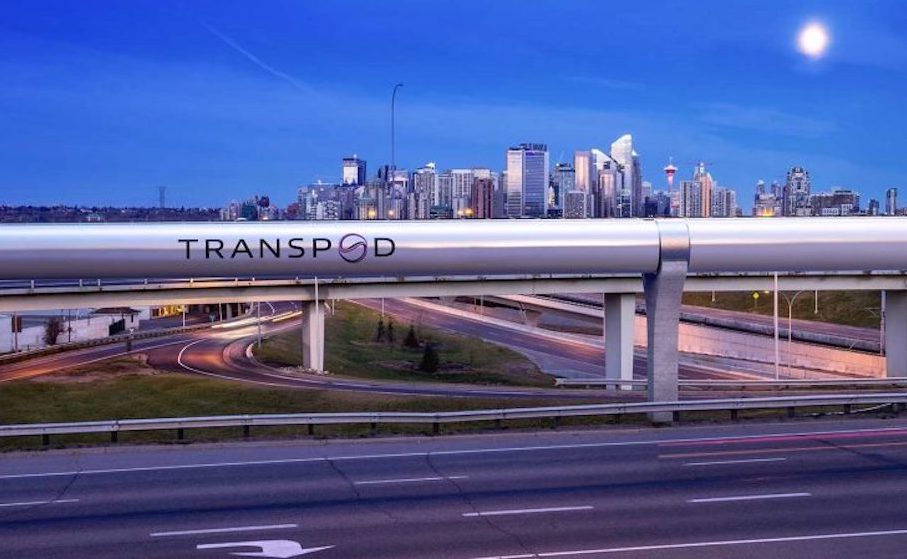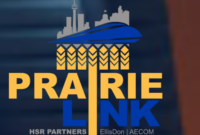Alberta Weighs $7B Hyperloop Between Calgary and Edmonton

A Canadian hyperloop startup now seeks to raise more than $380 million for the first-phase of its potentially revolutionary transportation project after winning support last month from Alberta government officials in a new agreement.
Toronto-based TransPod, which has proposed rocketing passengers and cargo at hundreds of miles per hour between Edmonton and Calgary through levitating tubes, said securing provincial approval provides a crucial measure of support for the budding project.
The memo of understanding between Alberta and TransPod does not include any government money, but province support will help the developer solidify its pitch to private investors who the company anticipates will bankroll the project, said its CEO and founder Sebastien Gendron.
He said the Alberta agreement is the first support of a government entity within a G7 country, according to a Canadian Broadcasting Corp. (CBC) report.
But the venture faces significant challenges, said a new study by Transport Canada, conducted for the public agency by engineering giant AECOM. Hyperloop technology shows “promise,” said the firm, which has been involved in design and construction of test facilities for other proposed projects.
But the report cited “too many uncertainties” for the hyperloop concept “to be considered a near-term, viable alternative to present day high-speed rail, magnetic-levitation trains, or aviation.”
Matti Siemiatycki, an urban planning and transportation professor at the University of Toronto, said the Transport Canada report underlines challenges facing new and unproven transportation technologies like hyperloop, which are in early stages of a vetting process that could take years to play out.
Still, TransPod’s CEO said the agreement with Alberta is a major step forward and would help give potential investors confidence that hyperloop technology is real and indicates a market for the ambitious and cutting-edge infrastructure project.
“We wanted to have official support,” Gendron said. “The support is more important than the money. It shows potential.”
TransPod’s proposal comes at a time when hyperloop style transportation projects are starting to proliferate around the word, with billionaires such as Elon Musk and Richard Branson promoting their own projects.
While some players in the new field have been cagey about details of the technical aspects of their plans, TransPod hopes to set itself apart by releasing a detailed description of the technology behind the proposal.
Founded in 2016, the company plans to follow that up with release of a project feasibility study, followed by a financing agreement in the summer for the first phase.
TransPod said it hopes to start work on the first $380-million-plus phase of the project in 2023, which will involve initial buildout of 2 miles of the eventual 186-mile hyperloop between Edmonton and Calgary, Gendron said, with funding also backing remaining testing and research.
TransPod’s budding proposal calls for aircraft-like, magnetically-levitated vehicles moving at more than 620 miles per hour through an above-ground vacuum-sealed tube atop concrete posts. The vehicles would carry a mix of passengers and cargo, reducing the trip between Edmonton and Calgary, which now takes several hours by car or truck, to 30 minutes.
The total cost of the project could hit $7.2 billion, with construction of the main hyperloop section under way between 2025 and 2030, Gendron said.
The project does not plan to seek public money, but Gendron said it is interested in potential funding from the quasi-public Canada Infrastructure Bank, launched a few years ago to use billions in federal seed money to raise tens and even hundreds of billions in private investment dollars for public infrastructure projects.
TransPod's financing effort is focused on pension funds, sovereign wealth funds and other investors who have become major players over the past few decades in public infrastructure project finance.




